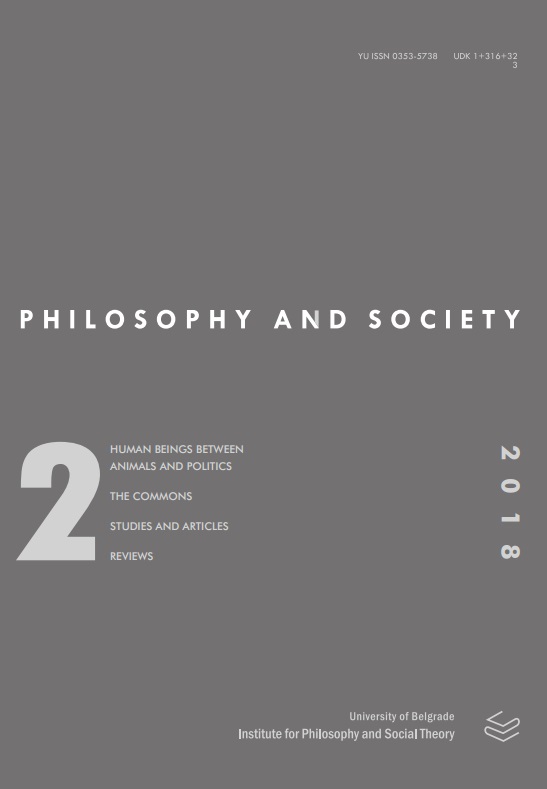Machiavellis realistisches Menschenbild und seine Rechtfertigung des Staats
Machiavelli’s Realist Image of Humanity and His Justification of the State
Author(s): Manuel KnollSubject(s): Political Philosophy, Social Philosophy, History and theory of political science
Published by: Institut za filozofiju i društvenu teoriju
Keywords: human nature; political realism; morality; political order; ambition; avarice; education; religion; law and order
Summary/Abstract: This article examines Machiavelli’s image of humanity. It argues against the prevailing views that characterize it either as pessimistic or optimistic and defends the thesis that the Florentine has a realist image of humanity. Machiavelli is a psychological egoist who conceives of man as a being whose actions are motivated by his drives, appetites, and passions, which lead him often to immoral behavior. Man’s main drives are “ambition” (ambizione) and “avarice” (avarizia). This article also investigates Machiavelli’s concept of nature and shows that, for him, the constancy of human nature is the central premise that makes the scientific analysis of politics possible. Despite the fact that human drives and capabilities are the same at all times, good laws, military training, and religion allow man to be changed and educated toward “virtue” (virtù). To make such changes in man, however, presupposes a good legal and political order. Machiavelli justifies the state because of its capacity to reshape human nature and to improve man. The state is not only a coercive power but a moral institution. This leads to the conclusion that Machiavelli does not separate politics from morality as most scholars claim.
Journal: Filozofija i društvo
- Issue Year: 29/2018
- Issue No: 2
- Page Range: 182-201
- Page Count: 20
- Language: German

